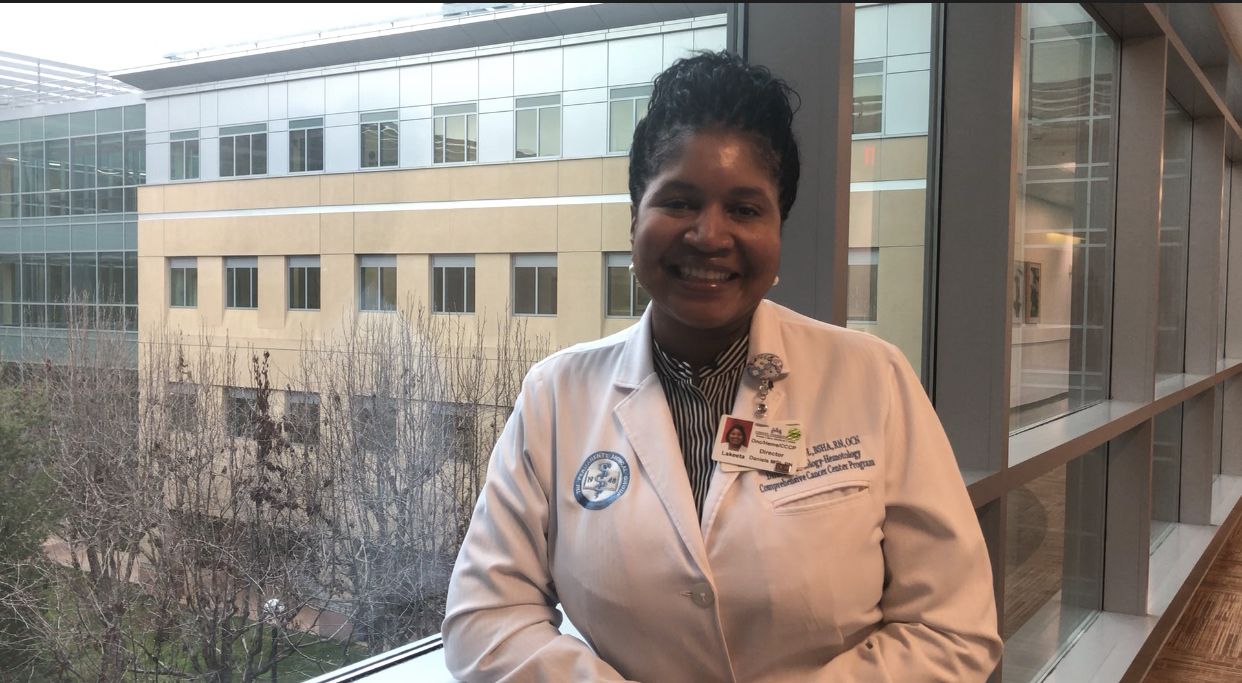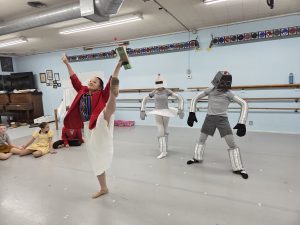Kee Daniels, a Registered Nurse (RN) and Director of Cancer Programs at Kaiser Permanente Santa Clara, was flying to visit friends and family in the Midwest on vacation, but she wound up helping deal with two airborne medical emergencies, one on the way out and the other on the way home to the Bay Area.
“I’m just glad I could be of service,” Daniels said humbly.
Flying to the Midwest, Daniels said she knew something was wrong when she saw a group of cabin attendants gathered around an elderly woman a few rows in front of her. She heard someone say, “diabetic coma” and got up immediately to help.
She found the 88-year-old woman alert but saying she didn’t feel well. The elderly woman complained of a bad headache and said she had a history of high blood pressure and diabetes. However, she and her 88-year-old spouse couldn’t coherently share any of her medical history or what medicines she was taking.
Using an airline blood pressure monitor, Daniels found the woman was in fact suffering from high blood pressure but was confident she’d be okay for the next 45 minutes of flying. Meanwhile, the flight crew arranged for an ambulance to meet the jet on arrival.
Daniels swapped seats and comforted the woman for the rest of the flight. Upon landing, the woman refused the ambulance. But her son, who was waiting at the airport, immediately took her to the family doctor.
Daniels’ return to the Bay Area later was a little more dramatic. It was an evening flight and Daniels, who couldn’t sleep, saw a woman in the aisle seat in front of her talking and gesturing with a man sitting across the aisle.
Suddenly, the woman shouted the man’s name and then reached across the aisle and started shaking his arm. Daniels saw the man wasn’t moving so she jumped up to help, finding the 72-year-old wasn’t breathing and had no pulse.
Because the man was seated, Daniels applied a sternal rub, using her knuckles on the man’s chest. After a few moments, he woke up.
He didn’t remember losing consciousness. But he was pale, perspiring, and complaining of feeling light-headed. Again, Daniels used the airplane’s blood pressure monitor and found his pressure was very low.
“As a healthcare professional, I just sensed that something dangerous was going to happen,” said Daniels. “And Oakland was still 2-and-a-half hours away.”
The man suddenly went unconscious again. Two passenger volunteers helped lift him from his seat and place him in the narrow aircraft aisle . Daniels took a seat that was even with the man’s chest and, leaning over the arm rest, started chest compressions.
The crew called for medical help, and a former physician with The Permanente Medical Group who was also on the flight jumped in to assist. The captain declared a medical emergency and diverted the plane in Denver, less than 45 minutes away.
The man responded to resuscitation efforts. For the remainder of the flight, the former physician administered oxygen through a face mask, Daniels made sure the man had a stable pulse, and other volunteers held on to his legs to ensure he wouldn’t be jolted down the aisle as the aircraft braked to stop.
An ambulance crew quickly boarded the jet and rushed the man and his wife to a Denver hospital. Daniels prays the man survived his crisis. However, since returning to Kaiser Permanente Santa Clara her colleagues are astounded at her experiences, which are truly above and beyond.
“I’m just glad I could help,” said Daniels. “It’s why I became a nurse and service is the model of care here at Kaiser Permanente.”












0 comments